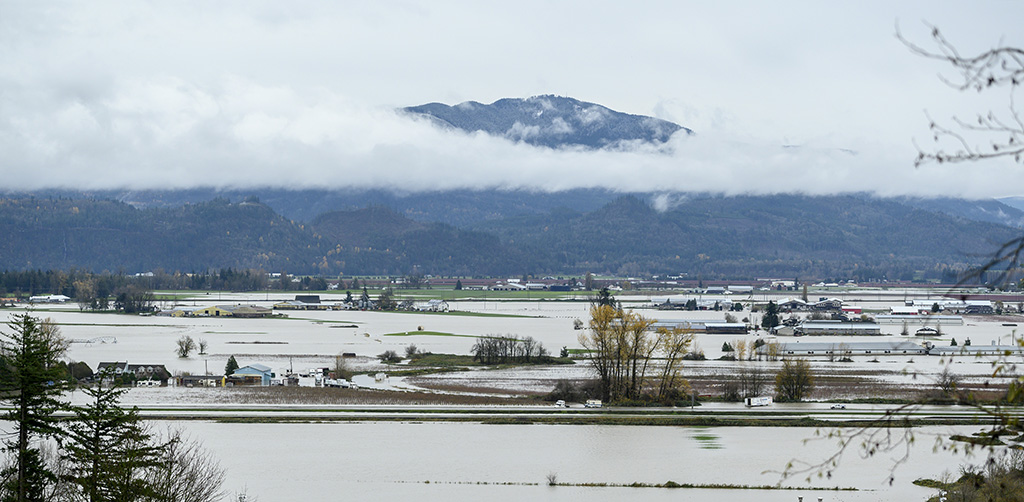The B.C. government is putting together a plan to protect water resources from the impacts of climate change, but some critics fear its approach is too limited in the face of a serious threat.
The province released its Watershed Security Strategy and Fund discussion paper this week to start public consultations. The final plan will be released by summer 2023.
“We urgently need to prepare for future climate events and work together to strengthen the security of our precious and threatened water,” said Minister of Environment and Climate Change Strategy George Heyman in a press conference. “This is important for our future, our children and our grandchildren.”
He noted British Columbians have already been impacted by “devastating” heat waves, floods, wildfires and drought in the last year.
“The climate crisis is a water crisis,” said Oliver Brandes, co-director of the University of Victoria’s Centre for Global Studies POLIS project, a research hub working on ecological thinking and action.
During the press conference Brandes said it’s “fundamental” that B.C. improves its ability to manage water sustainability.
“Water touches on every theme of the day, like security, prosperity, drinking water and health,” he said. Without water, “droughts endure, wildfires intensify, salmon die, soil is lost, food cannot grow, local economies falter and conflict mounts. Watershed security is how we begin to address these problems.”
But Torrance Coste, national campaign director for the Wilderness Committee, said it isn’t clear if the government understands how water can’t be looked at as a single issue.
Coste points to the fact the discussion paper only mentions forests twice, and logging not at all.
“The way government continues to hold forests as a separate issue from land management or climate change or water, it’s part of why we’re doing such a bad job on all of these things,” he said. “And if they continue to see these as separate issues, siloed off, then this process is doomed from the start.”
Coste also voiced concerns around the vagueness of the government’s definition of a watershed and how the Watershed Security Strategy and Fund will be just that — a strategy, not legislation with any legal backing.
The Fraser River has a dozen distinct watersheds that feed into it, he said. But it’s not clear from the discussion paper if those watersheds would be managed individually or collectively.
That could also make a big difference for smaller watersheds, like Fairy Creek, which drains into the San Juan River. The San Juan watershed is heavily logged, Coste noted, asking if that means the government would allow logging in the Fairy Creek watershed.
Water security isn’t a new concept in B.C. In 2019, the provincial Preliminary Strategic Climate Risk Assessment listed seasonal and long-term water shortages as among the greatest risks to B.C. by 2040, alongside severe wildfire seasons and heat waves.
Brandes said water issues are happening “faster than we planned.”
The discussion paper notes 10 general goals:
- Supporting and enabling watershed governance;
- Researching watersheds and the risks they face;
- Collaborating with Indigenous peoples on provincial water priorities;
- Offering safe drinking water for everyone;
- Incorporating water more effectively in Land Use Planning;
- Resetting water supply and demand;
- Improving aquatic ecosystems;
- Integrating Indigenous Knowledge into decision-making;
- Improving education about water management; and
- Creating a Watershed Security Fund.
BC Green Leader Sonia Furstenau applauded the move.
“The events of the last year have demonstrated that we need urgent investment in our natural infrastructure, with particular focus on building ecosystem and community resiliency,” Furstenau said in a statement.
Sarah Nathan, provincial operations manager for Ducks Unlimited Canada, said wetlands are a critical natural asset in the fight against climate change.
They absorb extra water during floods, store water during droughts and act as natural firebreaks during wildfires, Nathan said.
But in many of the most populated areas in southern B.C., “upwards of 85 per cent of natural wetlands have been lost to human development,” she added.
Furstenau noted the province’s logging policies are interconnected with water security and the government needs to make “more meaningful commitments” to conserve and restore forests as a key to watershed stability.
Coste said the discussion paper glosses over how most watersheds that provide drinking water for municipalities are privately owned, not publicly owned like in large urban centres like Victoria and Vancouver.
The Comox Valley watershed, for example, is primarily private forest land. The regional district recently had to build a $126-million water treatment facility because of water quality problems, he said.
Furstenau also called on the government to acknowledge “the negative impacts of fracking on water resources and human health.”
In December, the Canadian Centre for Policy Alternatives called on the government to charge the oil and gas industry higher rates for water use and to require the industry to treat its waste water.
When The Tyee asked if the watershed strategy would include new regulations for the oil and gas industry, Heyman said he was open to it if the public said it was a priority during the public consultations.
Coste noted the discussion paper says the watershed strategy will align with other government initiatives, citing protection of the Morice River watershed southwest of Houston, B.C.
Coastal GasLink is building a pipeline in the watershed, which is opposed by the Wet’suwet’en Hereditary Chiefs. The company has been cited for multiple environmental violations but the province has yet to impose penalties.
“If I was the government, I wouldn’t mention other existing strategies, because there’s not many great examples to point to,” Coste said.
Public consultation is open until March 18 at 4 p.m. People can send their feedback through the government website, by email or by contacting their local MLA.
* Story updated on Jan. 27, 2022 at 11:05 a.m. to correct the consultation deadline. ![]()
Read more: BC Politics, Environment
















Tyee Commenting Guidelines
Comments that violate guidelines risk being deleted, and violations may result in a temporary or permanent user ban. Maintain the spirit of good conversation to stay in the discussion.
*Please note The Tyee is not a forum for spreading misinformation about COVID-19, denying its existence or minimizing its risk to public health.
Do:
Do not: